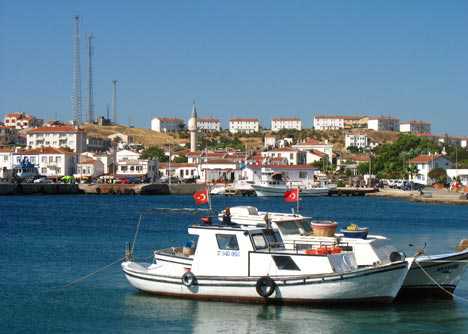Dorian Jones
Iranian Foreign Minister Mohammad Javad Zarif (L) shakes hands with his Turkish counterpart Ahmet Davutoglu after a news conference in Ankara November 1, 2013.ISTANBUL — Turkey’s foreign minister is due to visit Tehran on November 26, the latest step in rapprochement efforts between the former close allies. Relations soured over the Syrian civil war, but with rising sectarian tensions across the region, the two countries have committed to rebuild their relationship.
Turkey and Iran, on opposing sides of war in Syria, have been signaling a thaw in relations, saying they share concerns about the rising sectarianism in the conflict and could collaborate to bring peace to their neighbor.
Sinan Ulgen is a visiting scholar at Carnegie Europe in Brussels. He says the election of Hassan Rouhani as Iran’s president has also opened the door to warming relations.
“There was a rift. Now with the new presidency in Iran, Ankara sees the opportunity and tries to engage the new leadership. We can talk about a new period in terms of the Iranian-Turkish relationship, which, despite disagreements on a number of regional issues including Syria, seems to be going in the right direction,” says Ulgen.
During a meeting earlier this month in Istanbul, the Turkish and Iranian foreign ministers pledged to work together to ease regional sectarian tensions. Until recently, the two countries had accused one another of stoking tensions between Shi’ite and Sunni Muslims.
As a Sunni power, Turkey and its government, led by the Islamist-rooted Justice and Development Party, have been accused of pushing a foreign policy that favors Sunni interests. Iran and its Shi’ite clerical hierarchy have been guardians of Shi’a Islam in the Middle East, supporting Iraq’s Shi’ite-dominated government and Hezbollah, the Lebanese Shi’ite militant group.
Murat Bilhan is a former Turkish ambassador and works for the Tasam think tank. He says despite the new dialogue, suspicions will linger.
“They still had a frank talk and these discussions have toned down the rhetoric between the two countries. They have difficulties to trust Turkey because they look from an angle of sectarianism to Turkey. That is how they perceive the Turkish foreign policy,” says Bilhan.
Despite bilateral tensions, trade between the countries has continued to flourish. Turkey is Iran’s biggest customer for natural gas and Ankara has indicated it may increase its consumption. Turkey has few natural energy reserves of its own.
The increase in trade comes despite international sanctions against Tehran over its nuclear energy program. Western countries claim the program is being used to develop nuclear weapons, a charge Iran denies.
This week, world powers are meeting again in Geneva for talks on Iran’s nuclear program. The renewed diplomatic efforts to resolve the dispute is also another factor behind Ankara’s rapprochement efforts, says analyst Ulgen.
“The nuclear negotiations have gathered momentum and there seems to be some quite substantial developments. And Turkey does not want to be totally alienated from this process. That’s also another reason why there has been a decision to reach out to Iran,” says Ulgen.
Those efforts are expected to accelerate in the coming months, with visits by the Iranian president to Turkey and Turkish Prime Minister Recep Tayyip Erdogan to Iran. But observers say any efforts to expand ties between the two countries will be constrained by the Syrian conflict and the fact that Turkey and Iran have been – and will remain – regional rivals.

